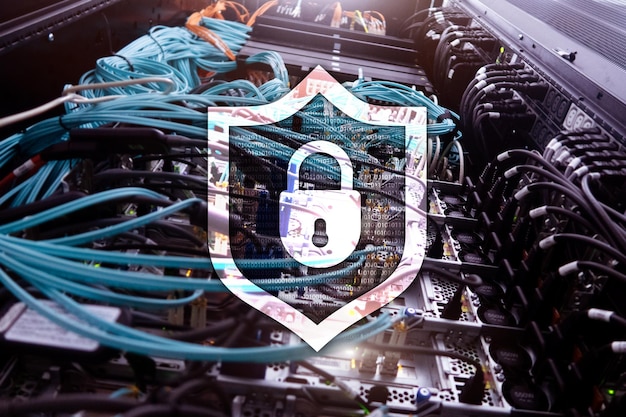
Professional IT Training Programs for Career Growth
Comprehensive courses in cloud architecture, DevOps engineering, and cybersecurity operations designed for working professionals seeking to advance their technical expertise.
Return HomeOur Training Methodology
Practical Focus
Each program combines theoretical knowledge with extensive hands-on practice. Participants work in cloud sandbox environments, configure automation pipelines, and implement security controls using the same tools employed in production environments. This practical emphasis ensures skills transfer directly to professional contexts.
Lab exercises progress from guided implementations to independent problem-solving, building confidence through repeated application. By program completion, participants have built functional systems demonstrating their competence.
Progressive Learning
Curriculum design follows established principles of progressive complexity. Each module builds upon previous knowledge, introducing new concepts only after foundational understanding is established. This structured approach prevents cognitive overload while maintaining appropriate challenge levels.
Regular checkpoints assess comprehension and identify areas requiring additional focus. Instructors adjust pacing based on cohort progress, ensuring all participants develop solid understanding before advancing to complex topics.
Industry-Aligned Content
Our programs align with recognized industry frameworks and best practices. Cloud courses reference AWS Well-Architected Framework, Azure Architecture Framework, and Google Cloud best practices. DevOps content incorporates principles from leading organizations and experienced practitioners. Cybersecurity training follows NIST guidelines and industry-standard security frameworks.
This alignment ensures participants learn approaches valued by employers and applicable across diverse organizational contexts. Quarterly curriculum reviews incorporate emerging technologies and evolving practices, maintaining relevance in a rapidly changing field.

Cloud Architecture Fundamentals
Master essential principles of cloud computing infrastructure and architecture design across AWS, Azure, and Google Cloud platforms. This comprehensive program teaches scalable, reliable, and cost-effective cloud solution design.
View Full DetailsWhat You'll Learn
Core Competencies
- Multi-cloud platform architecture across AWS, Azure, and GCP
- Containerization with Docker and orchestration with Kubernetes
- Microservices architecture design and implementation
- Serverless computing paradigms and function-as-a-service
Practical Applications
- Building multi-tier applications in cloud environments
- Implementing CI/CD pipelines for cloud deployments
- Managing cloud resources efficiently and cost-effectively
- Real-world case studies from enterprise deployments
Program Benefits
Participants develop practical skills in designing and implementing cloud infrastructure across multiple platforms. The program includes hands-on labs for building containerized applications, managing Kubernetes clusters, and implementing serverless architectures. Real-world case studies provide insight into enterprise-scale deployments and architectural decision-making. Certification preparation materials support participants pursuing professional cloud certifications.
DevOps Engineering Mastery
Transform IT operations with modern DevOps practices and automation tools. This program covers infrastructure as code, continuous integration and deployment, and comprehensive monitoring solutions.
View Full Details
What You'll Learn
Technical Skills
- Infrastructure as code using Terraform and Ansible
- Continuous integration with Jenkins and GitLab CI
- Monitoring and observability with Prometheus and Grafana
- Configuration management and automated testing strategies
Process Expertise
- Building automated deployment pipelines
- Implementing observability frameworks and incident response
- Agile methodologies and cultural transformation strategies
- Collaboration between development and operations teams
Program Benefits
This program prepares participants to streamline delivery pipelines and improve operational efficiency. Practical workshops cover building automated deployment systems, implementing comprehensive monitoring, and establishing incident response procedures. The curriculum emphasizes both technical tools and organizational practices, addressing the cultural and process changes inherent in DevOps adoption. Suitable for system administrators, developers, and IT managers seeking to modernize their operational approaches.

Cybersecurity Operations
Develop expertise in protecting digital assets and responding to security incidents. This intensive program covers network security, vulnerability assessment, penetration testing, and security operations center procedures.
View Full DetailsWhat You'll Learn
Security Fundamentals
- Network security fundamentals and architecture
- Vulnerability assessment and penetration testing basics
- Security operations center (SOC) procedures and workflows
- Threat detection and security monitoring techniques
Advanced Operations
- SIEM system implementation and management
- Forensic analysis and incident response planning
- Compliance frameworks and risk management
- Security policy development and auditing
Program Benefits
Participants learn to identify and respond to security threats using industry-standard tools and methodologies. Hands-on exercises in ethical hacking, security auditing, and incident response develop practical defensive capabilities. The program addresses both technical security measures and organizational security practices, including policy development and compliance requirements. Designed for IT professionals pursuing security specializations or organizations strengthening their security posture.
Course Comparison Matrix
| Feature | Cloud Architecture | DevOps Engineering | Cybersecurity |
|---|---|---|---|
| Duration | 12 weeks | 14 weeks | 16 weeks |
| Investment | ¥45,000 | ¥52,000 | ¥58,000 |
| Lab Hours | 40+ hours | 45+ hours | 50+ hours |
| Prerequisites | Basic IT knowledge | System admin experience | Network fundamentals |
| Career Focus | Cloud Engineers | DevOps Specialists | Security Analysts |
| Certification Prep | AWS, Azure, GCP | Various DevOps tools | Security frameworks |
Choosing the Right Program
Each program addresses distinct skill areas and career paths. Cloud Architecture suits those interested in infrastructure design and multi-platform deployments. DevOps Engineering focuses on automation, CI/CD, and operational efficiency. Cybersecurity Operations prepares participants for defensive security roles and incident response.
Consider your current experience, career objectives, and areas of interest when selecting a program. Our advisors can discuss which option aligns best with your professional goals and provide guidance on prerequisite knowledge requirements.
Professional Standards & Protocols
Quality Assurance
All programs follow structured curriculum development processes that include technical review, pedagogical assessment, and participant feedback integration. Content accuracy is verified by subject matter experts, and teaching materials undergo regular updates to reflect current best practices.
Lab environments are tested before each cohort to ensure proper functionality and accessibility. Technical support staff monitor environments during sessions to address issues promptly, minimizing disruption to learning activities.
Industry Alignment
Curriculum development incorporates input from industry advisory board members who provide perspective on current employer needs and emerging skill requirements. This feedback ensures program content remains relevant to actual workplace demands rather than becoming purely academic exercises.
Our instructors maintain active professional roles, bringing current knowledge of tools, workflows, and challenges into the classroom. This practical experience informs teaching approaches and ensures examples reflect realistic scenarios.
Professional Technology & Tools
Cloud Platforms
Participants access sandbox accounts on AWS, Azure, and Google Cloud Platform, allowing hands-on practice with commercial cloud services. These environments support experimentation without financial risk, enabling learning through doing.
DevOps Toolchain
Lab environments include Jenkins, GitLab CI, Terraform, Ansible, Kubernetes, Docker, Prometheus, and Grafana. Participants work with actual tool configurations rather than simplified simulators, developing real-world proficiency.
Security Tools
Security courses utilize industry-standard assessment and monitoring tools, including vulnerability scanners, SIEM platforms, and forensic analysis applications. Ethical hacking exercises occur in isolated lab environments.
Learning Management System
Our custom learning platform provides access to course materials, lab environments, discussion forums, and progress tracking. The system supports both synchronous and asynchronous learning components, accommodating different learning preferences and schedules.
Video recordings of live sessions remain available for review, and supplementary materials include documentation, reference guides, and practice exercises. The platform remains accessible for six months after program completion, supporting ongoing reference and review.
Frequently Asked Questions
Ready to Advance Your Skills?
Connect with our program advisors to discuss which training path aligns with your professional objectives. We can answer questions about prerequisites, scheduling, and program details to help you make an informed decision.
Request Information